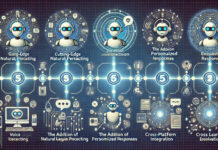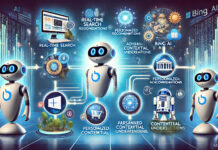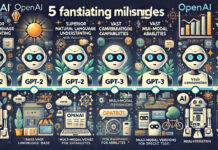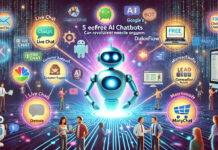Table of Contents
Artificial Intelligence (AI) is reshaping DevOps and Continuous Integration/Continuous Deployment (CI/CD), bringing enhanced efficiency, accuracy, and speed. This transformation is changing how teams develop, test, and deploy software. This article explores the impact of AI on these processes, highlighting key benefits and challenges.
The Role of AI in DevOps and CI/CD
AI has become integral to DevOps, a methodology that merges software development and IT operations. By automating and optimizing various stages, AI helps streamline the entire software lifecycle.
1. Automated Code Review and Quality Assurance
AI tools automate code reviews, ensuring compliance with best practices and standards. These tools identify potential bugs, security issues, and inconsistencies. Platforms like DeepCode and Codacy utilize machine learning to analyze code, providing actionable insights. This automation reduces manual effort and improves code quality.
2. Predictive Analytics in CI/CD Pipelines
AI-driven predictive analytics help foresee potential issues in the CI/CD pipeline. By analyzing historical data, AI predicts build failures and deployment issues. This proactive approach helps maintain smooth operations and reduce downtime. For example, AI can forecast which builds are likely to fail, allowing teams to prioritize these cases.
3. Intelligent Automation in Deployment
AI enhances deployment automation by managing and coordinating complex deployments. These systems make real-time decisions, such as scaling resources or rolling back updates. Kubernetes, along with AI tools like KubeFlow, provides advanced container orchestration, ensuring efficient resource use and high availability.
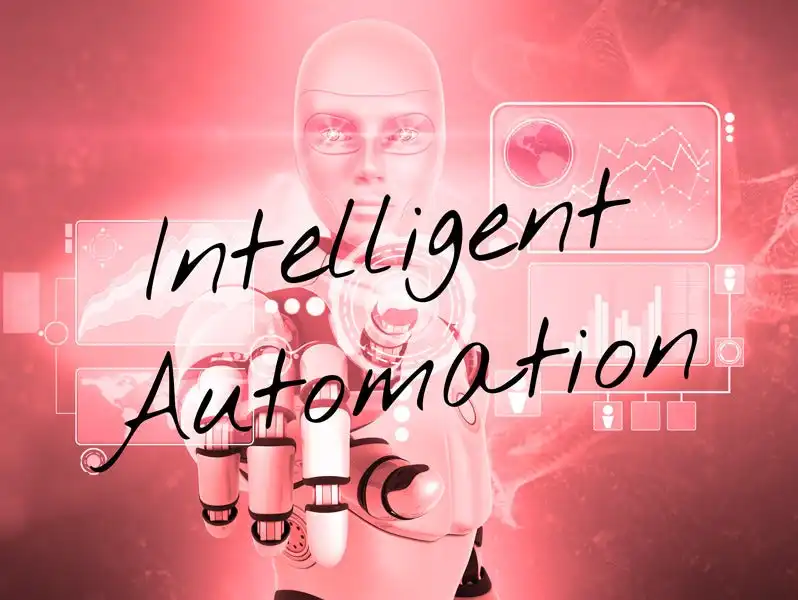
4. Enhanced Monitoring and Incident Management
AI improves monitoring through advanced anomaly detection and root cause analysis. Traditional monitoring generates alerts based on fixed thresholds, often causing alert fatigue. AI-powered monitoring systems, however, adapt to normal behavior patterns and better identify anomalies. Tools like Dynatrace and New Relic use AI to detect issues, correlate them with potential causes, and offer solutions.
5. Continuous Feedback and Improvement
AI fosters continuous feedback loops, helping teams learn from each deployment. By analyzing user behavior, performance data, and error rates, AI suggests improvements for both the application and the CI/CD process. This ongoing adaptation leads to better products and processes.
Benefits of AI in DevOps and CI/CD
1. Increased Efficiency
AI automates repetitive and mundane tasks, such as code reviews, testing, and deployment processes. By handling these tasks, AI frees up valuable time for developers, allowing them to focus on more complex and creative aspects of software development. For example, AI-driven tools can automatically identify and fix common coding errors, perform regression testing, and manage deployment pipelines. This automation reduces human error, minimizes the need for manual intervention, and speeds up the overall development process. According to a study by Capgemini, organizations using AI in their DevOps processes experience a 30% reduction in development time, which leads to faster delivery of features and products.
2. Improved Quality
AI enhances software quality by providing robust, automated testing and continuous monitoring capabilities. Machine learning algorithms can identify patterns in code that may lead to bugs, security vulnerabilities, or performance issues. For instance, AI can analyze historical bug data to predict areas of the codebase that are likely to introduce errors. It can also automatically generate test cases that cover a wide range of scenarios, including edge cases that might be overlooked by human testers. As a result, AI helps in catching issues early in the development cycle, thereby reducing the likelihood of defects making it into production. This leads to more reliable and stable software releases, enhancing user satisfaction and trust.
3. Faster Time-to-Market
One of the most significant benefits of AI in DevOps is the acceleration of the software delivery pipeline. AI-driven tools optimize the CI/CD pipeline by automating build, test, and deployment stages, significantly reducing the time required for each. For example, AI can prioritize tests based on their relevance and impact, allowing critical tests to run first and providing quicker feedback to developers. Additionally, AI can dynamically allocate resources, such as computing power and network bandwidth, to ensure that build and deployment processes are as efficient as possible. This capability is particularly valuable for organizations that need to release updates and new features rapidly to stay competitive.
4. Cost Reduction
AI helps in reducing costs associated with software development and deployment. By automating routine tasks, AI reduces the need for a large team of manual testers and DevOps engineers. It also minimizes the costs related to downtime and maintenance by predicting and mitigating potential issues before they impact the system. For example, AI can analyze system logs and performance metrics to identify signs of impending failures, allowing teams to address these issues proactively. Furthermore, the efficient use of resources, enabled by AI’s predictive capabilities, reduces operational expenses related to infrastructure and cloud services.
5. Enhanced Decision-Making
AI provides actionable insights through data analysis, helping teams make informed decisions quickly. In the context of DevOps, AI can analyze a plethora of data, including code changes, user feedback, and system performance metrics, to identify trends and patterns. For example, AI can help teams understand which features are most valued by users, which areas of the codebase are prone to issues, and how different changes affect system performance. These insights enable teams to prioritize their efforts effectively, focusing on high-impact areas that deliver the most value to users and the business.
6. Scalability and Adaptability
AI-driven systems can easily scale to accommodate the growing complexity of modern software projects. As organizations adopt microservices architectures and cloud-native technologies, managing the increased number of components and services becomes challenging. AI can help by orchestrating these components, ensuring that each service operates optimally. For example, AI can automatically scale services up or down based on demand, optimize resource allocation, and ensure seamless communication between microservices. This scalability is crucial for organizations looking to grow their applications and infrastructure without compromising performance or reliability.
Challenges and Considerations
While the integration of Artificial Intelligence (AI) into DevOps and Continuous Integration/Continuous Deployment (CI/CD) pipelines offers numerous benefits, it also introduces several challenges and considerations that organizations must address to ensure successful implementation and operation.
1. Data Quality and Availability
One of the primary challenges in leveraging AI for DevOps and CI/CD is ensuring the availability of high-quality data. AI systems rely heavily on data to make accurate predictions, automate processes, and provide actionable insights. Inconsistent, incomplete, or inaccurate data can lead to flawed algorithms and unreliable outcomes. For instance, training machine learning models on biased data can result in skewed predictions, which can negatively impact decision-making processes. Organizations must implement robust data governance practices, including data cleansing, validation, and regular audits, to maintain data integrity.
2. Complexity of AI Systems
AI systems, particularly those involving machine learning, can be complex to develop, integrate, and maintain. These systems often require specialized skills in data science, machine learning, and software engineering. This complexity can pose a barrier to adoption for organizations that lack in-house expertise. Moreover, integrating AI into existing DevOps pipelines necessitates a deep understanding of both AI technologies and the intricacies of the software development lifecycle. Organizations may need to invest in training or hire specialized personnel to manage and optimize these systems effectively.
3. Interpretability and Transparency
Another significant consideration is the interpretability of AI models. Many AI systems, especially those based on deep learning, operate as “black boxes,” meaning their internal decision-making processes are not easily understood by humans. This lack of transparency can be problematic, particularly in scenarios where understanding the rationale behind a decision is crucial. For example, if an AI system recommends a particular deployment strategy or identifies a potential security vulnerability, developers need to understand the reasoning behind these suggestions. To address this issue, organizations should prioritize the development and use of explainable AI models that provide clear, interpretable outputs.
4. Security and Privacy Concerns
The integration of AI in DevOps and CI/CD pipelines also raises security and privacy concerns. AI systems often require access to sensitive data, including code repositories, deployment scripts, and system logs. Unauthorized access to this data can lead to security breaches, intellectual property theft, or exposure of sensitive information. Furthermore, AI models themselves can be vulnerable to adversarial attacks, where malicious inputs are designed to deceive the model into making incorrect predictions. Organizations must implement robust security measures, including encryption, access controls, and continuous monitoring, to protect both the data and the AI models.
5. Cost and Resource Allocation
Implementing AI solutions in DevOps and CI/CD can be resource-intensive. The costs associated with acquiring and maintaining AI infrastructure, such as high-performance computing resources, specialized software, and data storage, can be significant. Additionally, the process of training and fine-tuning machine learning models can require substantial computational power and time. Organizations need to carefully consider the cost-benefit ratio of integrating AI into their workflows, ensuring that the potential benefits outweigh the investment. They may also explore cloud-based AI services that offer scalable solutions at a lower upfront cost.
6. Ethical and Regulatory Compliance
AI technologies raise important ethical and regulatory considerations. For instance, the use of AI in software testing and deployment decisions may involve automated judgments that can impact users and stakeholders. Organizations must ensure that these decisions are fair, unbiased, and compliant with relevant regulations. This includes adhering to data protection laws, such as the General Data Protection Regulation (GDPR), which governs the use and storage of personal data. Ethical considerations also extend to the impact of AI on employment, as automation may lead to job displacement in certain roles.
7. Resistance to Change
Finally, the introduction of AI into established DevOps and CI/CD processes can encounter resistance from team members accustomed to traditional workflows. Change management is a critical component of AI adoption, as it involves not only technical implementation but also cultural shifts within the organization. Leaders must effectively communicate the benefits of AI, provide adequate training, and foster an environment of collaboration and openness to new technologies.
Conclusion
AI is revolutionizing DevOps and CI/CD, automating routine tasks and providing predictive insights. While there are challenges, such as data privacy and skill gaps, the benefits of AI, including increased efficiency, improved quality, and cost reduction, are substantial. As AI continues to evolve, its role in software development will expand, driving innovation and efficiency.
For further reading and insights on AI’s impact on technology, check out our series on AI advancements across various industries.
